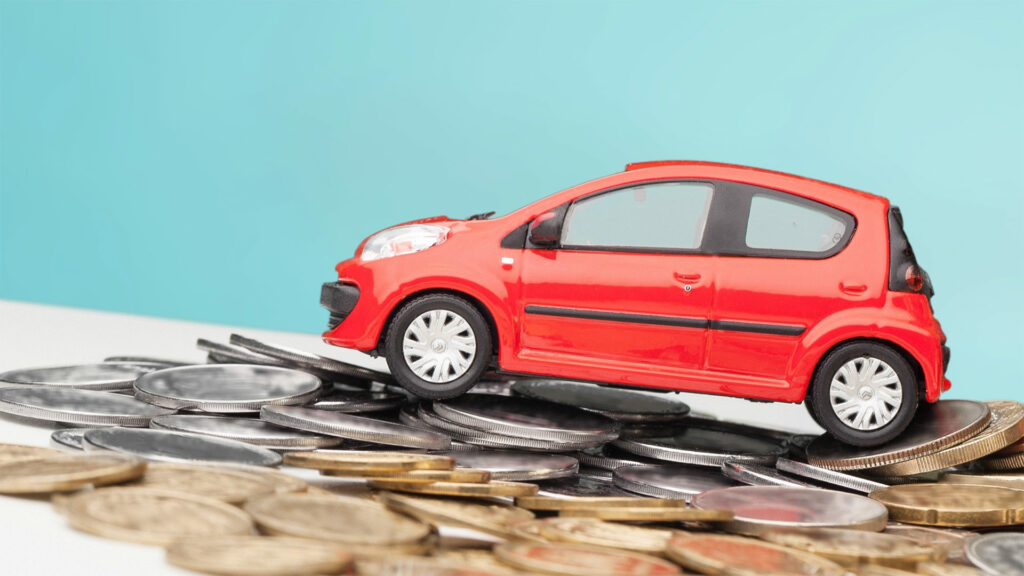In a nation where 88% of miles travelled in 2021 were by car, van, or taxi – a think tank says that current policies are failing to meet the needs of drivers. The Centre for Policy Studies (CPS) has released a report that urges the Government to adopt a more green-focused approach to motoring taxation. The report, titled ‘The Future of Driving', argues that the Government should target electric vehicles to address the issue of revenue shortfalls at the same time as looking to reduce congestion and air pollution.
If there are close to 40 million vehicles on the UK's roads and the RAC says that we drive an average of 7,000 miles a year each, then that means we're driving close to 280 billion miles a year in the UK. Running the numbers, Rishi Sunak's Government would need to charge drivers 9 pence per mile to plug the claimed £25 billion deficit that would be caused by everyone moving to electric vehicles. Of course, it would not be an overnight switch.
The implication for EV drivers is clear: £25 billion divided between 40 million vehicles would come to £625 per vehicle
One of the key findings of the report is the stark disparity between the funds generated by drivers through fuel duty and vehicle excise duty and the amount reinvested in the road network. In the 2021/22 fiscal year alone, drivers contributed a staggering £33 billion in taxes, while only £5.4 billion was allocated to national roads and £6.4 billion to local roads. This imbalance is deemed unfair to the CPS – for both drivers and the general public, who bear the burden of pollution-related health consequences.
Founded by Margret Thatcher in 1974, the CPS has a remit to be independent, while at the same time being dedicated to a particular set of principals that includes small state, national independence, free markets and self-determination. The organisation's chairman comes from the banking sector and he is all about 'empowering global financial markets' and ‘managing risk'.
Co-authored by CPS Energy and Environment Researcher Dillon Smith and CPS Research Director Tom Clougherty, the report presents a comprehensive set of recommendations to rectify the situation. It proposes the introduction of a per-mile charging system, known as a ‘pay as you drive' scheme, exclusively for Zero Emission Vehicles (ZEVs). Under this system, EVs would be charged a flat rate for every mile travelled, but still pay considerably less than their petrol and diesel counterparts. Additionally, all drivers would receive a set allocation of tax-free miles annually, with higher allowances for residents of rural areas with limited transport options.
As the number of EVs on the road increases, the report suggests gradually phasing out fuel duty and vehicle excise duty, replacing them with this new per-mile charging system. Such a transformation, according to CPS, would not only modernise the tax structure but also ensure fairness for drivers across the board.
According to the CPS, its report, “Highlights the strong public support for clean air zones to combat air pollution”. The report emphasises the “need for local governments to communicate more effectively and dispel the perception that these measures are solely revenue-focused”.
In London, recent videos have emerged that show pollution levels on the London Underground could be 10x higher than the levels Mayor Sadiq Khan has called ‘dangerous' on the capital's roads.
The CPS recommends strategies for improved communication and the allocation of funds collected from clean air zones to be used for transportation improvements and assisting individuals in transitioning to cleaner vehicles. It is unclear just how much the CPS believes it's important to tell EV drivers about how much they are likely to be paying by 2030.
Dillon Smith, CPS Energy and Environment Researcher and co-author of the report said, “Our recommendations take into account public sentiment, privacy concerns, and financial implications, ultimately delivering a solution that leads to fairer, better, and more efficient taxation while simultaneously addressing congestion and improving air quality in our major cities”.
Tom Clougherty, CPS Research Director and co-author, called attention to the need to reform the existing tax system, stating, “The Treasury has grown accustomed to motorists being a cash cow, but with the rise of electric vehicles, those days are numbered. We shouldn't replicate the old, punitive tax system, but it is still important that all drivers pay a fair amount for the roads they use”. Tom's report tells us the shortfall and how he'd like it to be plugged by electric vehicles – but he seems to stop short of publishing the numbers.
Also, it isn't clear how much of the ‘pay per mile' revenue that the CPS is suggesting the Government generates from EVs, will go toward improving roads and the national charging system.
According to the CPS, the proposed ‘pay as you drive' approach outlined in its report provides a ‘practical and gradual transition toward fairer taxation, while effectively managing congestion and reducing air pollution'.
With electric vehicles gaining momentum, the report's recommendations claim to offer a forward-thinking solution that aligns with the changing landscape of the automotive industry and the needs of the public. It remains to be seen how the government will respond to these recommendations, but the report looks to be a clear call to action to prioritise EVs as a means to plug the fuel revenue shortfall and create a more sustainable future for drivers and the environment.
The numbers on this seem pretty clear to us, but maybe we've missed something. A trusted think tank is telling the Government to make up a £25 billion shortfall in fuel tax revenues by targeting electric vehicle drivers. If this happens – what will the real-world numbers look like?
